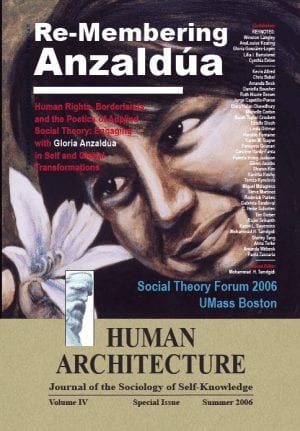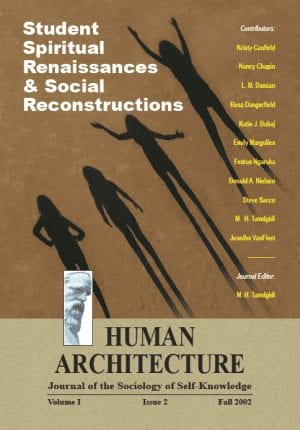Journal Article — Cynthia Enloe Student Roundtable: “What International Feminist Activists Have Contributed to Anti-Militarist Social Theorizing” — by Sarah Taylor Crockett, Amanda Bock, Caroline Hardy-Fanta, and Amanda Witbeck
$15.00
This is a student roundtable discussion led by Cynthia Enloe on “What International Feminist Activists Have Contributed to Anti-Militarist Social Theorizing.”
Description
Abstract
(Sarah Taylor Crockett:) According to Cynthia Enloe, militarism is more than what is conventionally understood by the term. It is, rather, “a package of ideas” that work to inoculate us to the ideas that the world is a dangerous place, that there are naturally those who must be protected (“feminine”) and, conversely, those who must protect (“masculine”), and that every “mature” and “serious” government must have a military to secure the protection of its people. Therefore, “Whole cultures can be militarized,” she says, and “militarization can transform a family or a Congress or a school without the military ever appearing there.” It is therefore important to include militarism in discussions of human rights through the lens of “feminist curiosity.” It is a method of learning to complicate what is “natural” or “traditional” in terms of patriarchy so that knowledge can be parlayed into understanding how to challenge those concepts of “natural” and “traditional” on a larger scale. (Amanda Bock:) By demilitarizing something, doesn’t one acknowledge and reinforce the validity of the militarized? Perhaps such an approach is overly theoretical, but arguments that are so vehemently polarized often require further examination.
More important, Enloe does not address the recent demasculinization of military structures, namely the US army and the corporate and governmental systems that sustain and promote it. (Caroline Hardy-Fanta:) Taking a feminist approach is undoubtedly important because if we don’t we miss looking at half of the worlds population. Caution must be taken as was the case with Western feminists, that we could be doing women a disservice by not taking into account their experience from within their culture thus misinterpreting their issues and projecting Western values onto nonwestern societies and subsequently perpetuating long standing colonial ideas and attitudes. (Amanda Witbeck:) I am still unclear about what it means to militarize something. Is it any employment of violence or aggressive force? Is something automatically militarized when it utilizes violence, such as self defense? Or is it organized violence? Is it any act performed in the name of national security? It seems militarism isn’t so much defined by violence as it is control. Control by occupying a place, or wielding power through limiting rights, not just by exerting violence. Enloe also stated that the foundation of militarism is built on ideas of a particular form of masculinity. Does being a feminist automatically make one anti-military?
Recommended Citation
Crockett, Sarah Taylor, Amanda Bock, Caroline Hardy-Fanta, and Amanda Witbeck. 2006. “Cynthia Enloe Student Roundtable: “What International Feminist Activists Have Contributed to Anti-Militarist Social Theorizing” .” Pp. 33-42 in Re-Membering Anzaldúa: Human Rights, Borderlands, and the Poetics of Applied Social Theory: Engaging with Gloria Anzaldua in Self and Global Transformations (Human Architecture: Journal of the Sociology of Self-Knowledge: Volume IV, Special Issue, 2006.) Belmont, MA: Okcir Press (an imprint of Ahead Publishing House).
The various editions of Re-Membering Anzaldúa: Human Rights, Borderlands, and the Poetics of Applied Social Theory: Engaging with Gloria Anzaldua in Self and Global Transformations can be ordered from the Okcir Store and are also available for ordering from all major online bookstores worldwide (such as Amazon, Barnes&Noble, and others).
Read the Above Publication Online
To read the above publication online, you need to be logged in as an OKCIR Library member with a valid access. In that case just click on the large PDF icon below to access the publication. Make sure you refresh your browser page after logging in.








